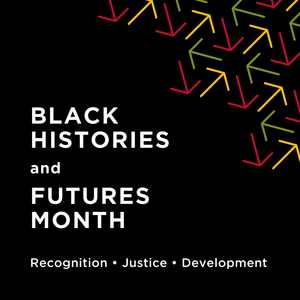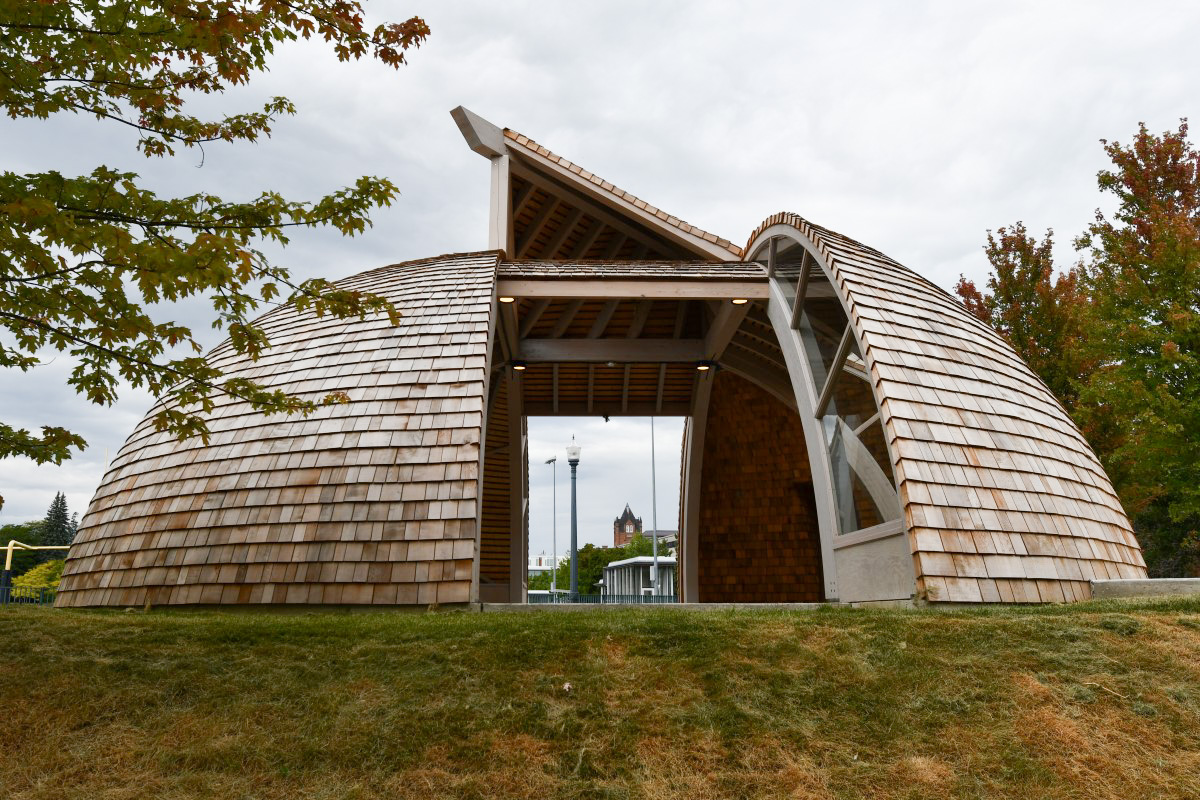Queen’s University strives to create an inclusive and welcoming environment in which diversity is valued and celebrated by all members of the campus community. The Inclusive Community Fund was established in 2018 to further these goals by providing financial support to host programs, events, initiatives, or projects that serve to promote a more inter-culturally informed, tolerant, and inclusive campus community. Established by a $50,000 annual contribution from the Office of the Vice-Principal (Culture, Equity, and Inclusion), the fund is available to any Queen’s student or employee.
- The maximum award for group projects, events, or activities is normally $3,000; the maximum award for individual projects, events, or activities is normally $1,000.
- Successful applicants are responsible for all aspects of the project, initiative, or event.
- Support from the Inclusive Community Fund should be acknowledged in publications, programs, credits, etc.
- Applications will not be considered for expenses already incurred.
- All events at Queen’s are to be accessible to people with disabilities.
- Guidelines on accessible event planning.
Submission Process
Individuals wishing to apply for funding must review the Inclusive Community Fund Guidelines and complete a proposal and budget form.
Proposals must include the project title and description. The description should address the following:
- The name(s) of the individual(s) or group(s) proposing the project;
- The purpose of the project;
- The intended audience;
- The proposed date;
- Affiliation with any other special event;
- Actions taken to ensure the project, initiative, or event is accessible to people with disabilities;
- Proposed activities; and
- Desired outcomes and methods of measuring success.
Proposals and budget forms may be submitted electronically using the linked funding application. Applications may be submitted at any time.
Fund Guidelines
Eligible Expenses
- Supplies and promotional materials for campus awareness campaigns that promote an inclusive community
- Hosting or co-hosting awareness programs, conferences, events, etc.
- Speaker fees and associated expenses
- Venue and equipment rentals for events
- Food and/or non-alcoholic beverages for the event
- Volunteer recognition tokens of appreciation
- Service costs that make the event or initiative accessible
- Other operating expenses not excluded below
Non-eligible Expenses
- Expenses arising from events or initiatives that have the effect of marginalizing, discriminating against, harassing, and/or excluding any identifiable group of persons
- Expenses arising from events in support of political parties
- Expenses arising from research projects
- Equipment purchases
- Alcohol
- Expenses such as charitable donations, wages, and/or honoraria
- Expenses in support of an individual attending a meeting or conference outside of Kingston
- Travel outside of Kingston
Successful applicants must agree to return any unspent funds.
The Office of the Vice-Principal (Culture, Equity, and Inclusion) is not responsible for covering deficits of projects, initiatives, or events that cost more than the anticipated budget.
Sponsorship of a project, initiative, or event through the Inclusive Community Fund does not make it a Queen’s-sanctioned event. As such, the university assumes no liability out of or in consequence of any attendance or participation in an activity or event.
Each project proposal will be reviewed and judged in relation to the following criteria:
- The extent to which the project, initiative, or event promotes a more inter-culturally informed, tolerant, and inclusive campus community
- The extent to which the project, initiative, or event is open to Queen’s and/or the broader community
- The extent to which the project, initiative, or event enhances the quality of the student or employee experience at Queen’s
- The extent to which the project, initiative, or event promotes Queen’s in a positive manner
Funding awards will be determined by the Inclusive Community Fund Committee based on the funding award criteria for the program.
Membership on the Committee consists of:
- two representatives from Student Affairs
- one representative from the Human Rights and Equity Offices
- one student representative
- one staff representative, and
- the Deputy Provost (Academic Operations and Inclusion), or delegate.
The approval and amount of funding will be contingent upon:
- The availability of funds and the total amount of requests received.
- The alignment of the project, initiative, or event with the selection criteria set out above.
Successful applicants must submit a report within 30 days after the completion of the project. The report should include:
- Title or name of project
- Names and contact information of person(s) completing the report
- Scope and number of persons that participated in the project, initiative, or event
- Copies of promotional materials, programs, etc.
- Description of the event and how it contributed to a more inter-culturally informed, tolerant, and inclusive campus community. Include copies of media coverage if applicable and available.
- Final budget including a breakdown of how the funds were spent.
Future applications to the Inclusive Community Fund will not be considered unless and until this report is submitted. Please submit your report electronically to icf.vpcei@queensu.ca.
Other Funds
The Black Student Initiative Fund was established in 2018 to create an inclusive and welcoming environment in which diversity is valued and celebrated by all members of the campus community.
The Robert Sutherland Visitorship was created to enable dialogue and inspire action around race-related, equity and justice issues in order to shape our citizens of tomorrow. The Provost’s Advisory Committee for the Promotion of the Arts adjudicates proposals from members of the Queen's community to invite persons of distinction to be Robert Sutherland Visitors or to host scholarly events.
Highlights from Diversity and Inclusion Events
Throughout the academic year, a number of student, faculty, and staff led events and speaker series were held to promote discussions of anti-racism, cultural awareness, and celebrate diversity at Queen’s.
2024 Black Histories and Futures Month Activities
The Queen’s Black Medical Student Association (QBMSA) honoured Black History Month in Queen’s Health Sciences by organizing a series of initiatives that began in February 2024, stretching beyond a singular month. Activities included a Black History Month Display in the School of Medicine Building atrium, a full day Black Healthcare Symposium, Resident Pearls of Wisdom discussions, and a Black History Month Coffee House, showcasing Black art, poetry, and talent. The activities were in collaboration with the Human Rights and Equity Office.

Queen's Research Mentorship Program 2023-24
This program serves as a bidirectional learning experience for Indigenous students (secondary and elementary) in the community and Queen’s University graduate student mentors. Mentors aim to foster inquiry and problem-solving skills through scientific discovery to help equip mentees for success in current and future educational paths. Mentors also learn about Indigenous approaches and ways of knowing, while giving back to a local Indigenous community. Eight weekly sessions for secondary students and three pilot sessions for elementary students are proposed from January to April 2024.
Office of Indigenous Health Grand Opening
This project supports the grand opening of the Queen’s Health Sciences EDIIA Initiatives space that is reserved for the Office of Indigenous Health. The Office of Indigenous Health will be used for gatherings that include feasts, meetings, healing circles amongst other opportunities. The grand opening events will take place Spring 2024 and another when students return in September 2024.

“A to Zine” Workshops and Exhibit
Zine culture has a long history of inclusivity, social and political activism. It is also known to provide a safe space for marginalized contributors to express freely on their own terms, through an accessible medium. “From A to Zine” is a graduate student-led zine project including an exhibition at the W.D. Jordan Rare Books and Special Collections gallery, zine making workshops, a zine swap and share event, and a zine commission.
Black Joy Conference
The Queen’s Black Academic Society (QBAS) presented an annual conference entitled “Black Joy” to showcase Black creativity, resilience, and success. The conference delves into how Black people exude and exemplify Black Joy in everyday living and through passions ranging from creative, academic, and professional spaces. A one-day, accessible event included speakers, workshops and a panel presentation around celebrating Black Joy and addressing mental health within the community.
Queen’s Cultural Market
The second annual Cultural Market took place March 13 at Grant Hall where 50 cultural and religious clubs were invited to host tables and showcase their heritage by distributing educational materials, merchandise and offering foods reflecting their culture. Organized by the AMS Mental Health Awareness Committee, the event’s goal was to promote a more inclusive campus environment where every culture is acknowledged and celebrated. Clubs were able to attend free of charge and free admission provided to those who wished to attend.
Ramadan Iftar Program 2024
The Queen’s University Muslim Students Association (QUMSA) hosted daily Iftar meals throughout Ramadan, offering community support for fasting students on campus. This year marks the first full Ramadan observance for Muslim students on campus. The free events were hosted at the Queen’s University International Centre (QUIC) and food was provided by local Halal restaurants and caterers. Approximately 4,500 meals were provided. Student Affairs supported QUMSA by developing plans to make this annual event sustainable through community partnerships.
International Women’s Day 2024
Queen’s Women’s Network, Women in Science at Queen’s, and Women in Engineering organized a celebration of International Women’s Day and information session from Women-focused groups across campus. The event, held at the BioSciences atrium on March 8, provided an opportunity to network and learn about available women’s groups at Queen’s. The occasion featured information booths, speeches, and a casual lunch. This year, the Kingston Interval House was invited to participate and attendees were encouraged to bring needed items to be circulated in the community.
The Art and Waste in Panniqtuuq (Pangnirtung) Exhibition
The Art and Waste in Panniqtuuq (Pangnirtung) Exhibition, hosted by the Isabel Centre for the Performing Arts October 23 to November 3, 2023, was the culmination of more than a decade of work with Inuit leadership on waste problems facing this community by Dr. Myra Hird (School of Environmental Studies), and PhD student Micky Renders, who collaborated with Inuit artists to create more than 60 works animating their lived experiences of waste issues, through art, since the summer of 2019. Nunavut, Panniqtuuq is just like any other isolated, small community – it faces numerous human health, well-being, and environmental struggles due to legacy and contemporary settler colonialism. The exhibition used a broad-ranging, conceptual approach, while the sculptures, photographs, tapestry, and other artworks provided profound insights into waste issues that are integral to Canada’s commitment to Truth and Reconciliation.

The exhibition represented a multigenerational art exhibition involving young people, Elders, the Hamlet leadership, and community members, voicing their individual and collective perspectives and sharing their stories.
Supplied photo